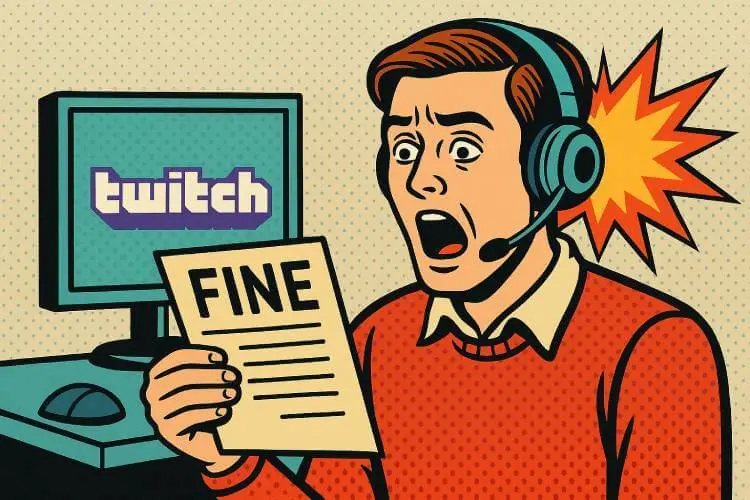Twitch Streamer Faces Penalty for Unlicensed Gambling Ads


The Danish Gambling Authority has fined a Twitch streamer in Denmark 10,000 Danish Kroner (approximately USD $1,505) for promoting unlicensed gambling operators. The fine follows an investigation by Spillemyndigheden, Denmark’s gambling regulator, which found that the streamer had advertised illegal gambling sites on his channel.
The case clearly reminds content creators, especially those working in or around the gambling space, that they must understand and comply with local laws. With online platforms like Twitch reaching global audiences, regulators are looking closer at how gambling is promoted and whether streamers follow the rules.
A Warning to Content Creators Worldwide
This enforcement action reflects a growing global trend: regulators are paying more attention to gambling-related content online. As more influencers incorporate gambling into their streams, through online casino games, betting segments, or sponsored deals, the risk of violating local advertising laws increases.
Each region has its gambling regulations. The rules around gambling ads vary significantly between states and provinces in places like the United States, Canada, and Australia. What might be legal in one jurisdiction could be a serious offense in another. This means doing due diligence for streamers and content creators before partnering with casinos or promoting betting platforms.
In Denmark, only licensed operators are allowed to advertise, and promotions must meet specific guidelines. The streamer violated national law by promoting unlicensed gambling services, even if unintentionally. The fine emphasizes that ignorance of the law isn’t a defense.
What This Means for Online Casinos
The Twitch case also signals a shift for online casinos that rely on influencer marketing to reach new players. As authorities clamp down on unlawful promotions, online casinos must be more selective about who they work with and how their brand is represented.
Unlicensed gambling platforms trying to gain visibility through content creators now face added risk. At the same time, reputable and trustworthy online casinos are under pressure to ensure their marketing complies with regional standards. This means more precise terms, transparent sponsorships, and more oversight on affiliate relationships.
Marketing in the online gambling space is evolving. Instead of pushing limits, casinos that want long-term success are finding ways to align with legal standards in each market they operate in.
Increased Oversight in Digital Advertising
Digital platforms like Twitch, YouTube, and Kick have opened new avenues for gambling promotion, but they also come with higher visibility and more regulation. Regulatory bodies are no longer focused solely on operators. They're also watching the creators, influencers, and streamers who help drive traffic.
For creators, this means reviewing the gambling laws in their target markets, understanding legal vs. illegal promotion, and being selective about sponsorships. Simple actions like showing a gambling logo or linking to an unlicensed site can result in fines, account bans, or worse.
Some platforms have introduced policies limiting gambling content, but enforcement remains inconsistent. That’s why regulatory agencies are stepping in directly, using fines, public warnings, and investigations to reinforce the message.
Conclusion: Know the Rules Before You Stream
The fine issued to the Danish Twitch streamer may seem small, but it sets an important precedent. It shows that regulators are watching and willing to act, even when the violator isn’t a traditional gambling operator. For streamers, influencers, and casinos alike, the message is clear: comply with local advertising laws or risk financial penalties and reputational damage.
As online gambling continues to merge with digital entertainment, all parties involved must take responsibility. Staying informed and operating within legal boundaries helps protect businesses, viewers, and players who rely on creators for honest, safe content.
Was this article helpful?
